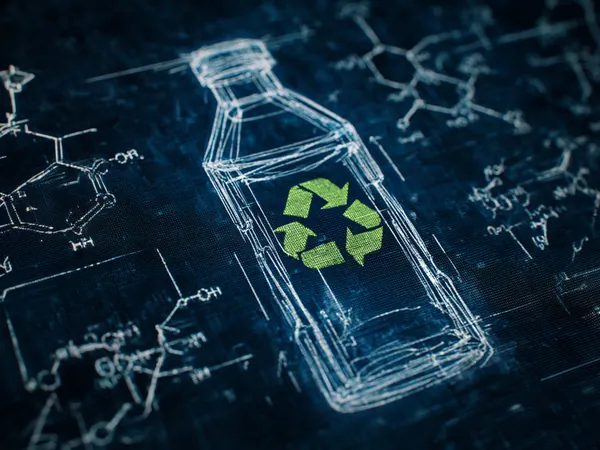
Revolutionizing Plastics: The Future Is Sulphur-Based!
2025-09-02
Author: Sophie
A Breakthrough in Sustainable Plastics
Imagine a world where plastics can naturally break down without harming the environment. Thanks to groundbreaking research, this vision is becoming a reality. Scientists have discovered that sulphur atoms can significantly enhance the sustainability of polymers, as the bonds they form with carbon are easier to break compared to those formed with carbon or oxygen.
While this promising discovery has long been overshadowed by challenges in large-scale production, an international research team—featuring experts from Martin Luther University Halle-Wittenberg, Texas A&M University, and the University of Bayreuth—has taken a monumental step forward. They have developed a revolutionary method to test and compare various sulphur-containing building blocks for plastic production.
A Predictive Rule for Excellence in Polymer Production
Professor Alex J. Plajer, a leading researcher in macromolecular chemistry at the University of Bayreuth, shared the excitement: "With our study, we have established a predictive rule that identifies which sulphur-based building blocks create perfectly structured, clean polymers—and which do not." Until now, efforts to produce these innovative plastics required custom-tailoring of building blocks and reaction conditions for each specific combination, making the process inefficient.
Carbonyl Sulphide: A Game Changer!
In their pursuit of sustainable solutions, the researchers pinpointed carbonyl sulphide as the star of their findings. This sulphur-based building block not only reacts consistently but also forms long, uniform polymer chains with minimal catalyst use, drastically reducing unwanted by-products. This discovery opens the door to efficient and cleaner production methods.
Towards a Sustainable Future
Plajer emphasizes the significance of their findings: "Our research lays the groundwork for developing new, environmentally friendly materials that can decompose in a controlled manner." This could change the whole landscape of plastic manufacturing, offering a viable solution to the global plastic waste crisis.
As we stand on the brink of an ecological revolution, the shift towards sulphur-based plastics could mark a turning point in how we produce and consume materials—ushering in an era of sustainability like never before!









 Brasil (PT)
Brasil (PT)
 Canada (EN)
Canada (EN)
 Chile (ES)
Chile (ES)
 Česko (CS)
Česko (CS)
 대한민국 (KO)
대한민국 (KO)
 España (ES)
España (ES)
 France (FR)
France (FR)
 Hong Kong (EN)
Hong Kong (EN)
 Italia (IT)
Italia (IT)
 日本 (JA)
日本 (JA)
 Magyarország (HU)
Magyarország (HU)
 Norge (NO)
Norge (NO)
 Polska (PL)
Polska (PL)
 Schweiz (DE)
Schweiz (DE)
 Singapore (EN)
Singapore (EN)
 Sverige (SV)
Sverige (SV)
 Suomi (FI)
Suomi (FI)
 Türkiye (TR)
Türkiye (TR)
 الإمارات العربية المتحدة (AR)
الإمارات العربية المتحدة (AR)